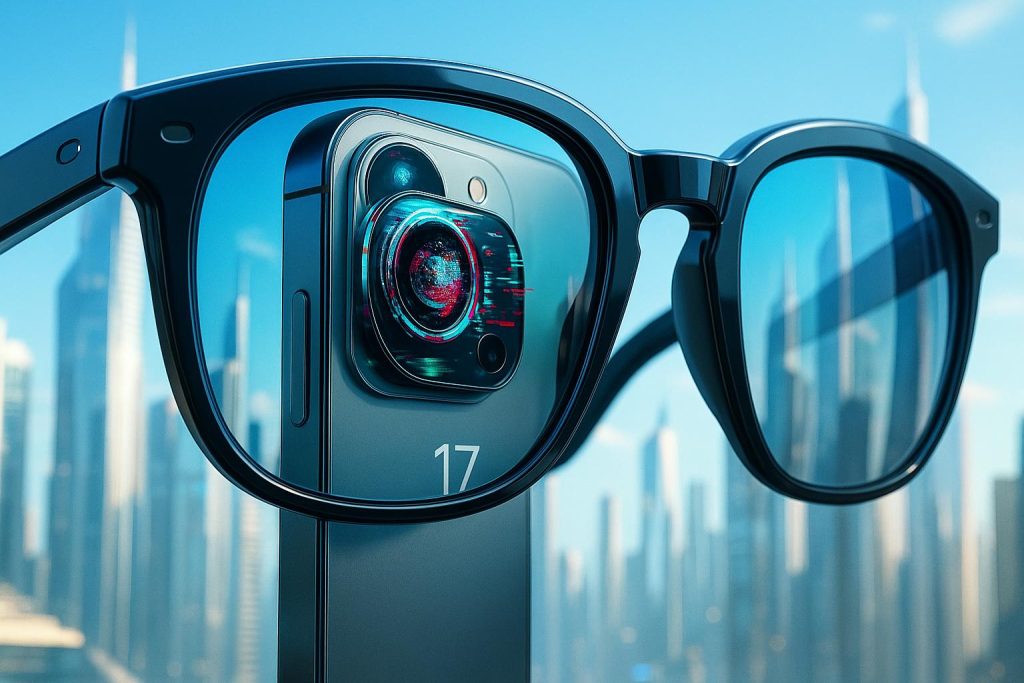Listen to the article
As Apple prepares to launch its iPhone 17 series with a camera issue, Meta releases its first consumer AR smart glasses, highlighting rapid product innovation alongside growing data privacy challenges in the Asia-Pacific region.
Apple is set to launch its latest iPhone 17 series on September 19, including the new ultra-thin iPhone Air, designed to replace the previous Plus model. Early reviews highlight the improved battery life and sleek design, but users have reported a rare camera issue: under extremely bright LED lighting conditions, some photos display black boxes or squiggly artefacts. Apple has acknowledged this software glitch, which mainly affects the iPhone 17 Pro and iPhone Air models, and plans to release a swift software update to resolve the problem. The company is committed to a smooth rollout and aims to deliver the fix promptly to ensure customers avoid encountering the flaw.
In the realm of wearable technology, Meta Platforms has unveiled its first consumer-ready augmented reality (AR) smart glasses, the Meta Ray-Ban Display, priced at about $799 and available from September 30. These smart glasses feature a heads-up display in the right lens to provide notifications and pair with a wristband controller for gesture commands. CEO Mark Zuckerberg highlighted the product as a key step in Meta’s AI-integrated wearable strategy despite minor hiccups during the product demonstration. The glasses offer about nine hours of battery life and integrate with popular fitness platforms like Garmin and Strava, aiming at fitness enthusiasts and tech adopters.
Industry experts recognise the launch as a milestone while noting challenges ahead. Forrester analyst Mike Proulx compared the glasses to Apple’s initial launch of the Apple Watch, praising the everyday form factor but emphasising Meta will need to demonstrate clear value for consumers to justify the $800 price tag. IDC’s Jitesh Ubrani noted the glasses provide great technological value but predicted wider adoption will be slow until software applications mature and deliver more everyday utility.
Meta has continued to enhance the capabilities of its Ray-Ban Meta smart glasses with features such as AI-powered video functions and real-time language translation, enabling speech translation between English and several European languages. These software upgrades arrive via ongoing updates, amplifying the glasses’ functionality beyond notifications and simple tasks, marking progress toward more integrated AR experiences.
The manufacturing partner behind these smart glasses, EssilorLuxottica, has announced plans to significantly increase production capacity to 10 million units annually by the end of the next year and to expand the collaboration with Meta. Since launching two generations of Ray-Ban Meta glasses, the firm has sold over 2 million units. Plans include broader integration with other brands and introduction of subscription services, signalling a commitment to scaling smart eyewear as a mainstream consumer category.
These consumer technology announcements come alongside significant developments in cybersecurity and data privacy in the Asia-Pacific region. South Korea’s Lotte Card recently disclosed a major data breach impacting nearly 3 million customers, including approximately 280,000 cases involving sensitive details such as PINs and passwords. The incident provoked direct intervention from President Lee Jae Myung, who demanded comprehensive national measures to reduce hacking risks. The breach highlights the increasing vulnerability of financial institutions to sophisticated cyberattacks.
Meanwhile, in Australia, privacy regulators censured retail chain Kmart for installing facial recognition cameras across multiple stores without properly informing customers or obtaining consent. The use of biometric data without transparent communication breached the country’s Privacy Act, with officials emphasising that legitimate aims like fraud prevention do not exempt businesses from compliance. Kmart has expressed disappointment and is considering an appeal. This case sets a significant precedent on retail applications of AI surveillance technologies globally.
Overall, the tech landscape shows a mix of rapid innovation and emerging challenges. Apple and Meta are pushing the boundaries of consumer electronics with new mobile and wearable products, while the risks of data breaches and privacy violations underscore the need for robust regulatory frameworks and corporate accountability. The expansion of smart eyewear reflects growing confidence in augmented reality as a consumer technology platform, though widespread adoption depends heavily on software ecosystem advancement and consumer trust.
📌 Reference Map:
Source: Noah Wire Services



